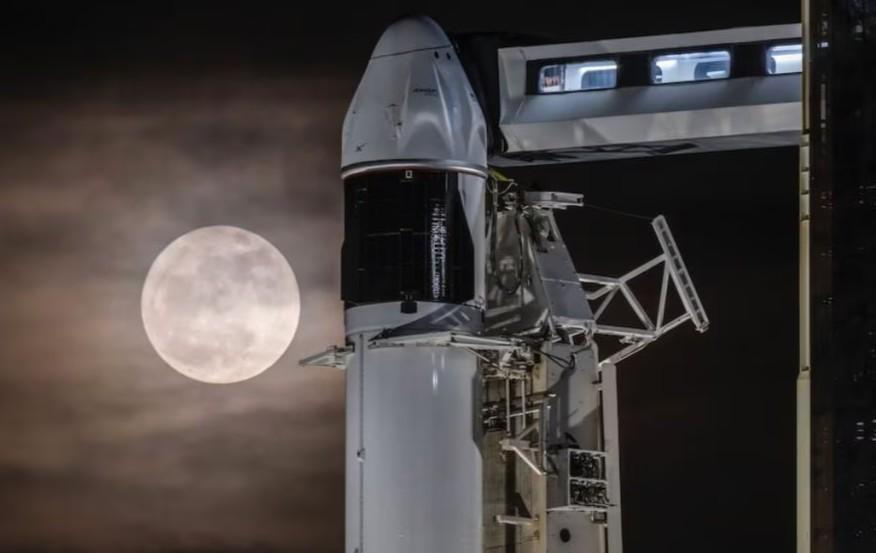
Pichai, Musk & Bezos competing to establish data centres on Moon: Report
In a surprising turn of events, three of the world’s most influential tech moguls, Sundar Pichai, Elon Musk, and Jeff Bezos, are reportedly competing to establish data centres on the Moon. According to a Wall Street Journal report, these tech giants are exploring the possibility of storing and processing data on the lunar surface, citing the Moon’s unique environment as a major advantage.
The report highlights that the Moon offers a stable environment with low temperatures in certain regions, which could significantly reduce cooling costs for servers. This is a major concern for data centres on Earth, as they require massive amounts of energy to keep their servers cool. The Moon’s natural temperature, which can drop to as low as -173°C in some areas, could provide a natural cooling system, eliminating the need for expensive cooling equipment.
Another significant advantage of building data centres on the Moon is the availability of open land. Unlike on Earth, where data centres are often limited by space constraints and environmental concerns, the Moon’s surface offers a vast, untouched territory that can be used to build huge facilities without worrying about the environmental impact. This could enable the construction of massive data centres that can store and process vast amounts of data, making it an attractive option for tech companies looking to expand their operations.
The idea of establishing data centres on the Moon may seem like science fiction, but it’s not as far-fetched as it sounds. With private companies like SpaceX and Blue Origin, founded by Elon Musk and Jeff Bezos respectively, already working on lunar missions, the infrastructure for such a project is already being developed. Sundar Pichai, CEO of Google, has also been investing heavily in space technology, with the company’s subsidiary, X, working on a range of space-related projects.
So, what’s driving this push to establish data centres on the Moon? One major factor is the increasing demand for data storage and processing. As the world becomes increasingly digital, the amount of data being generated is growing exponentially, and tech companies are struggling to keep up with the demand. Building data centres on the Moon could provide a solution to this problem, offering a vast, untapped territory for data storage and processing.
Another factor is the potential for the Moon to become a hub for space-based communications. With the rise of satellite constellations and space-based internet services, the Moon could play a critical role in facilitating communication between Earth and other planets. Establishing data centres on the Moon could enable the storage and processing of vast amounts of data generated by these space-based services, making it an attractive option for companies like SpaceX and Amazon.
While the idea of building data centres on the Moon is exciting, it’s not without its challenges. One major hurdle is the cost of transporting equipment and personnel to the lunar surface. Currently, the cost of launching a payload into space is prohibitively expensive, making it difficult to justify the cost of building a data centre on the Moon. However, with the development of reusable rockets and other space technologies, the cost of access to space is decreasing, making it more feasible to consider such a project.
Another challenge is the radiation environment on the Moon. The lunar surface offers little protection against cosmic radiation, which could pose a risk to both personnel and electronic equipment. However, this challenge could be mitigated through the use of radiation-hardened electronics and other protective measures.
In conclusion, the reported competition between Sundar Pichai, Elon Musk, and Jeff Bezos to establish data centres on the Moon is an exciting development that could have significant implications for the tech industry. While there are challenges to be overcome, the potential benefits of building data centres on the Moon, including reduced cooling costs and access to vast, untapped territory, make it an attractive option for tech companies looking to expand their operations.
As the world becomes increasingly digital, the demand for data storage and processing is only going to grow, and the Moon could play a critical role in meeting this demand. Whether or not these tech moguls succeed in their efforts to establish data centres on the Moon, one thing is certain – the future of space technology is looking brighter than ever.






